We don't want the story of Canton and Haywood County in western North Carolina to be one of pity or sorrow. We want it to be one of resiliency and hope and grit, but again, also grace.
Zeb Smathers
A single natural disaster can change a community for generations. But in the span of five years, Canton, North Carolina, experienced Tropical Storm Fred, Hurricane Helene, and a significant economic shock: the closure of its paper mill. The 115-year-old institution had employed more than a thousand people and was a source of pride for workers and their families. In this episode, Tony Pipa visits Canton to understand how residents are working together to navigate this series of crises, and what it means to be a mill town without a mill.
Featuring:
- Patsy Davis, Executive Director, Mountain Projects Community Action Agency
- David Francis, President, Haywood County Chamber of Commerce
- Zeb Smathers, Mayor of Canton, North Carolina
- Shelley White, President, Haywood Community College
Want to learn more? Read Tony’s interview with Matt Calabria, director of the Governor’s Recovery Office for Western North Carolina, on how state leadership is coordinating recovery after the most devastating storm in state history.
Transcript
[sound of mill whistle]
PIPA: At noon on May 24th, 2023, a steam-powered whistle blew for the last time atop the paper mill in Canton, North Carolina, a town of over 4,400 people 20 miles west of Asheville. People stood on a nearby roof to watch. The sound was the town’s calling card. Since 1908 it had signaled a shift change and had been a part of everyday life.
In the distance, church bells chimed 115 times to mark the number of years the plant had been in operation. Its sudden closure was a disaster for the town, leaving more than a thousand people without a job and ripping out the cornerstone of what had been the town’s identity for more than a century. And yet, it was only one in a series, sandwiched between the natural disasters of Tropical Storm Fred and Hurricane Helene.
[music]
ZEB SMATHERS: I joke that Canton’s slowly working through Revelations. I mean, we went through a pandemic, a flood, tropical storm Fred. Six deaths. Massive damage in ‘21; mill closure in ‘23, 1,100 jobs; and much more evaporated in ‘23. And then Hurricane Helene in ‘25. We’ve also had locusts. We’ve had a few earthquakes. I’m not making this up. We are slowly checking off our Revelation bingo card, like I said, but we’re still here.
TONY PIPA: In the first episode of this season, we were in Old Fort, North Carolina, hearing about their recovery from Hurricane Helene. On this episode of Reimagine Rural, you’ll hear about Hurricane Helene again, but it’s just one part of five years of calamity and crisis in Canton, North Carolina, five years of enduring one shock after another … and still finding hope.
[music]
I’m Tony Pipa, a senior fellow in the Center for Sustainable Development at the Brookings Institution, and your host for Reimagine Rural, the podcast where I visit rural places experiencing change, get the story from local residents and leaders, and explore the implications and intersections with public policy.
Zeb Smathers is the mayor of Canton. He grew up here in the 1990s, his roots eight generations deep in Western North Carolina. His grandfather Lorenzo ran Smathers Supermarket in Canton in the ‘70s, when the downtown was bustling. Lorenzo was known for handing out lollipops to kids and creating a sense of community at his store.
[2:50]
SMATHERS: He did not have separate facilities for African Americans. He let the Black community buy on credit and it’s amazing even today how many people remember that.
PIPA: That Rockwellian picture had changed by the time Zeb was a kid.
SMATHERS: I saw pollution and especially in the river. I remember especially even a younger child just being covered up and foam and the odor was constant and the discharge would be on your cars. And that got better, a little bit better over time through the ‘90s.
Our downtown, I saw the end of it. I saw the end of my granddad’s supermarket. Businesses and restaurants. The Canton I grew up in the ‘90s was basically boarded up. We didn’t have anything. but more importantly, there was a mindset that our best days were behind us. The towns like Canton, Milltown, small towns, those days were gone. The world was changing around us.
PIPA: Zeb graduated high school in 2001 and went on to Duke University, followed by the UNC School of Law in Chapel Hill.
[music]
The best of both blues, as he says. He still practices law with his dad.
[3:52]
SMATHERS: After I passed the bar. I came home. That was always the plan. It was hard to say goodbye to the bright lights of the Triangle. But other than marrying my wife, it was the best decision I ever made was to come home.
Wherever you call home is where you call home. I’m a big believer other than the words “I love you,” the most important word in the English language is “home.” Everyone’s had one. Everyone has one now. And we’re all looking for a place that we can call our own, that we can be safe, that we can laugh, we can cry, we can catch our breath in this crazy world.
But I came home with a little bit, I think, of a cheat code. I watched Raleigh and Durham, and, you know, these other places really grow, the good and the bad. And at the same time I was in school, we were watching Asheville change. Asheville was becoming Beer City, USA. You had President Obama here several times. And Canton’s 20 minutes away. So I saw an opportunity. Asheville’s growth, Buncombe County’s growth, was gonna give Canton an opportunity.
PIPA: From Zeb’s perspective, to take advantage of that opportunity, Canton had to embrace its unique, authentic identity.
[5:05]
SMATHERS: The other thing that we did during 2013 through about 2020, is we embraced who we were. We were a mill town, you know, we still at that point had the paper mill. We had some bumps and bruises. But for years we had plenty of consultants tell us, do this, be that, be the next Asheville, be Brevard, whatever it may be.
We needed to be us. The moment we embraced being a mill town, a paper town, things started happening. And that’s another lesson I’ve learned. Being authentic, being who you are stands out now and is worth more than it ever has been because we live in such a superficial world of social media, bells and whistles, and spin that when you are who you are, which it’s easier to be who you are, a lot of things happen naturally.
Being authentic and being yourself matters. And people were drawn to us. Right across the street right now there’s Paper Town Coffee, a wonderful coffee shop. You could put that coffee shop in any metropolitan area in the U.S., and it would be successful. But it’s Paper Town Coffee, and it’s unique to us, and it feels like it’s unique to us.
PIPA: A change in mindset took hold, and the downtown began to revive. After four years as an alderman, Zeb became mayor. Near the end of his first term in August 2021, a year-and-a-half into the COVID pandemic, Tropical Storm Fred made its way inland from the Gulf of Mexico.
[6:39]
SMATHERS: Anytime there’s a storm in the Gulf, that’s the ones that make us worry in the mountains. It seems the mountains in North Carolina are now in Hurricane Alley. The storms are coming quicker, stronger, meaner.
A wall of water, of debris was marching our way. And it was building strength and taking out everything in its path. At one point I was in the water helping people get out. We had no warnings. And I don’t fault that. This was one of these where it was just, you know, ten things had to happen, all ten happened.
There were people that were got washed away, grabbed a tree, took their belt buckle off, tied themself to a tree, and basically rodeoed to that tree for hours or so till being rescued. If it had happened a few hours later, buses, school buses would’ve been caught in it.
[music]
I remember the sheriff called me that and we thought we were looking at 60 plus deaths.
PIPA: Six people were killed in the storm and over 450 structures were damaged. The response from the state was swift, but Zeb remembers how frustrating it felt to wait weeks for the federal disaster declaration from the Biden White House. He was, however, inspired by the bipartisan collaboration between his congressional delegation and the governor’s office to get it approved.
SMATHERS: At the end of the day, Tropical Storm Fred was more of a demonic flash flood than anything. But we lost our river district businesses, homes, my sister’s home, my town hall, fire department, police EMS vehicles, six people. Just tremendous, unimaginable damage.
PIPA: The recovery from Tropical Storm Fred exposed some gaps in the official response system. Patsy Davis, who is retiring as the executive director of the Mountain Projects Community Action Agency, describes how her organization stepped into the breach.
[8:43]
PATSY DAVIS: That day, I was actually at a meeting, and I come back to our office and our office was getting ready to take on some water because it had rained so greatly. We’re a nonprofit, so it’s all hands on deck. So I was out with a raincoat trying to clean out some drains and trying to keep the water from coming into the building. And I couldn’t wait just to get home and get some dry clothes on and get a bath and get a shower and get warm.
And it probably was about 10 minutes after I got home that the county manager called and said, we need you to do evacuations. And then we got the call to go to the Bethel community and to pick up people. It was way after dark and we were putting people on our vehicles. They didn’t have shoes on their feet, they didn’t have coats, they didn’t have cell phones, they had nothing. They had their animals and that was about it.
PIPA: The next day, Patsy drove people to permanent shelters and gathered numbers on how many displaced residents might need rental assistance.
[9:37]
DAVIS: We immediately started putting on an appeal to the community. Do you have empty properties that you can rent? Any second homeowners that would be willing to, to house people for a period of time.
I don’t mean any disrespect to any organization, but FEMA’s not gonna move too quickly. And the day after all of these storms you, you’ve gotta be able to react and you’ve gotta hit the ground running and you’ve gotta have food and you’ve gotta have resources.
And having been in our community for 60 years, I think people, some people and our elderly folks, especially, they know our phone number by heart and they will call and say, where can I call? Where can I go and what do I need? That is not the time to say, you know, you need to go to this agency or that agency. You just sometimes just need to help people.
PIPA: For Shelley White, president of Haywood Community College, the disaster hit close to home.
[10:28]
SHELLEY WHITE: Outside of Canton, there was a school bus that was stranded because of a bridge that was washed out.
[music]
And the students had to be rescued across this bridge. And I think we all remembered that.
PIPA: The school was a drop-off point for supplies and donations, and a landing site for FEMA. Emergency services teams used equipment from the school’s academic programs. Students’ and employees’ houses were damaged. One of the six deaths was a relative of a student at Haywood Community College.
WHITE: So the connection to the loss was real.
PIPA: At the time, David Francis was the economic development director at Haywood County. For the first four weeks, he led efforts to corral volunteers and accept donated water, food, and clothing. The tropical storm arrived at the beginning of that week, and by Saturday, they had to stop taking donations. The next step was cleanup.
[11:34]
FRANCIS: Walking through this and you actually see the amount of destruction, there was a manufactured home that was up up on the river, and it had gotten hung up on the bridge, wrapped and twisted where the waters were so forceful it veed it around the bridge stanchions. And you can see the power and the force of the water. We lost six lives during that storm, and I was surprised it wasn’t many more after you see that destruction that happened there.
PIPA: David witnessed small businesses running into the same problem those in Old Fort did when Helene hit: FEMA doesn’t give financial support to small businesses. And if business owners received a pandemic loan from the Small Business Administration, getting one for Fred wasn’t going to be so easy.
[12:21]
FRANCIS: So that was a big learning curve for me during Fred about the lack of resources there for small businesses. It was devastating to those businesses, and I felt very powerless and felt that I couldn’t do as much as I could have done, should have done there. And then having to go back and tell the business that I’m sorry I couldn’t do anything for you. Extremely frustrating from Fred. And it was like one of those lessons learned.
[music]
I went, check. I’m gonna be prepared next time.
PIPA: But the next disaster wasn’t a natural one. It was an economic one. Shelley White was at home having dinner with her husband one evening in March 2023 when she got a call from David Francis.
[13:08]
WHITE: He said, the mill’s closing, period. And I just paused, and I didn’t really know how to respond. And I said, the whole mill? And then my husband looked up, ‘cause he could tell in my voice. And David said, the whole mill. And I said, when? And he said, this summer. And it’s just like silence, like we’re both just sitting there.
So I got off the phone with him and I just sat there, and I looked at my husband and I said, the mill’s closing. It’s one of those times that I will always remember where I was because it was such a significant development.
PIPA: The 185-acre campus of Pactiv Evergreen, the paper mill in the heart of downtown Canton, would close by summer. The mill had been there since the turn of the 20th century.
[music]
The original owner bought the mill site and 25,000 acres of spruce forest in what is now Pisgah National Forest around the same time. The Champion Coated Paper Company, as it was called then, built a company town with 60 houses that came to be known as Fibreville. The early years brought hundreds of new residents to Canton, and Champion was on the cutting edge of development in the papermaking industry. The company was also a part of history: During the Great Depression, it sold 90,000 acres of land to the federal government, which eventually made it part of the Great Smoky Mountains National Park.
Many people who worked at the paper mill were lifers, in more ways than one—they’d once had a hand in printing the pages of LIFE magazine. They saw the company come under new ownership in the late ‘90s when workers themselves purchased the mill, and saw it sold then again.
It was always part of the town’s identity. The name “Milltown” is emblazoned on the high school football team’s jerseys.
Whispers that the mill would close had circulated off and on for years. But on that March day in 2023, Patsy Davis saw people online saying they’d learned the news at a ball game, and the next morning, she realized this time, it was true.
[15:20]
DAVIS: I don’t know if it’s the same across America, ‘cause I’ve only lived in the mountains, but there’s a great deal of loyalty to your employer in those mountains. A lot of those mill employees have been there 25, 30 years. They had given so much to that that mill, and to find that out was just very hurtful.
SMATHERS: I was sitting literally where I’m at right now and I have some buddies down there that called me and said, something’s going on. There’s been a meeting called. And I got a phone call, and it said, the mill’s closing. This is it.
Growing up here, there’s always rumors. I always laugh—if that mill over 115 years ago opened up on a Wednesday, on Thursday someone said they heard the mill was closing. But this time it was real, and it was massive, and it was a surprise. And I had to find out from workers being told.
PIPA: It wasn’t just that the mill was closing that stung so much—it was the way it happened. Zeb had just been down in Raleigh talking to the general assembly about getting the mill some money. Now he realized that during this whole time, the company’s management had the closure in the works.
[16:30]
SMATHERS: That was one of my many, many parts that really angered me is that there were people finding out through social media before others that should have known, especially families and workers. And I’ll never forget, and I don’t know who it was, but again, stereotype, just a big, strong, burly mill worker in overalls. And he was hurrying away, had a phone in his ear, and had tears in his eyes. I can only imagine he was calling his wife that just in a few short months, he would not have a job.
[music]
This mill has been the economic lifeblood of this town and this county and the forest industry in the whole southeast region of the U.S. for over 115 years. It was a death in the family.
PIPA: As economic development director, David Francis began to look at the bigger picture: For every mill job lost, two other jobs could go as well.
[17:28]
FRANCIS: The hairdresser lived down in Canton not having people come in. Or somebody working at one of the local restaurants, they don’t need that kitchen worker anymore. Those impacts downline. And, you know, we were lucky, we didn’t see those types of problems.
But there was a whole set of other workers: the logging industry, the folks on the rail line. There was nearly 200 cars of chips coming in from by rail to there. And there was another hundred trucks coming in from chips from over in near Murphy. That trucking and that chip mill over in Murphy immediately closed. 1,822 jobs gone right within the first period of March to June.
PIPA: David set about alerting workers to new opportunities. Pactiv, the mill’s owner, didn’t make it easy to reach people. David said they refused to provide employee email addresses, so they had to go where the people were. He found placements in plants and companies across the region. About 50 people went to work at Pratt & Whitney’s turbine airfoil manufacturing plant in Buncombe County, for example. For some, the drive time to Asheville took some getting used to.
[18:34]
FRANCIS: We’re posting placards and stuff throughout the mill, and they had a union hall that we were able to have people come in. And that’s where we set up a lot of the insurance and next steps. Luckily, we had that available to us because if we didn’t have that I think it would’ve been extremely hard. And then, you know, the ability to use social media and things like that to get the word out.
PIPA: To understand the potential impact of the mill closure, David was thumbing through a report about the 2003 shutdown of a textile mill near Charlotte. He saw a statistic that shocked him.
FRANCIS: There was nearly some 90 suicides that happened after that mill closure. I got very scared about what was gonna happen.
PIPA: David started looking at health insurance options. Enrollment for health insurance through the Affordable Care Act Marketplace wouldn’t open until early winter, and even if they been able to sign up early, they’d have to start their deductible all over again.
FRANCIS: The census of the mill workers was not a very healthy group—a lot of blood pressure, cholesterol, diabetes, just a whole series of health problems that they had. So I said, this is where a crisis is getting ready to happen.
PIPA: A federal law allows workers to use their employer-sponsored health care for up to 18 months after losing a job, but workers have to shoulder the full cost. And it can get expensive. David worked with Patsy’s group, Mountain Projects, to find funding that would help cover the cost of the health care until the enrollment period for other providers opened up. Partners such as Blue Cross Blue Shield and the Dogwood Health Trust, a local charitable foundation, donated $1.5 million so that workers would be able to keep their health insurance.
[20:20]
FRANCIS: And what I can proudly say is that we didn’t have any suicides, there was no loss of life during this time because somebody didn’t have the means to pay for their medical needs and assistance there. So I thought that was a big win for our county that we were able to step in.
[music]
PIPA: Back in 2015, eight years before it closed Canton’s mill, Pactiv Evergreen received a $12 million grant from the state of North Carolina—an economic incentive designed to create jobs. As part of that agreement, the mill agreed to keep on at least 800 full-time employees for 10 years. Because Pactiv closed the mill before the contract period ended, the state sued the company, demanding they return the money. The parties reached a $6.25 million settlement earlier this year.
[21:10]
DAVIS: This community was wounded and hurt for a long time. Still some of that around. I’ve seen some serious mental health. I’ve seen some bitterness, and personality changes, and how dare them, they ruined my life kind of thing. And there’s still a few people who have not gotten back to their original self as a result of that.
PIPA: Helping people start over after such an experience, and after such a long tenure at their job—that can be challenging.
[music]
Shelley White and her team showed just how important Haywood Community College is to the area—not just as an educational institution, but as an anchor for the community’s development and well-being. She knew it in the moments immediately after receiving the news of the mill closure.
[22:00]
WHITE: I guess in that moment I shifted from the shock to the response because I knew from my previous work in economic development that the community college is also positioned to help respond when there’s an economic crisis. And we do, we have all these resources to bring to the table. We start a text thread that night, like, tomorrow morning, nine o’clock, mill closure response team meeting.
PIPA: The community college joined other service providers for on-the-ground support, connecting families with resources. They hosted training programs that summer for people who lost jobs at the mill.
WHITE: It’s not just that initial few months after. It’s not that first fall registration. But it’s gonna be the spring, the fall, the following couple of years because of whatever severance package they might have or other savings that they might have to help with the transition.
There were folks that their last day of work was on a Friday, and they started a training program with us on a Monday. And in a few weeks’ time, I think it was like an eight weeks program, they had a CDL truck driver license, and they were able to go to work somewhere else.
PIPA: It’s the ethos of the community college to be not just about education, but about hope.
[23:19]
WHITE: We carry that spark and that opportunity is there, and it’s available to everyone. And it’s our job to provide access and to help people connect with those opportunities. So that in itself is an uplifting message and has so much hope in it. So when we arrived with a smile and an opportunity, it’s just a matter of making that connection so that someone can see that that opportunity is available to them.
PIPA: It’s also a long-term commitment.
WHITE: This graduation season, so 2025, two years later, we’ve been talking to individuals that just graduated but went into programs that first fall after the mill closed, and they’ve just now finished their degree and, and are now onto their next path.
And I think this is why working in community colleges is so special, is because we are able to bring hope to the table. We are able to bring the opportunity of a new future for someone to the table. That when you do have a layoff and your grandfather worked at this place, or your great-grandfather, and maybe you’ve never had the need to think of anything different, the community college is able to bring an option, a pathway, a future. And that’s powerful.
[rushing water sound]
PIPA: Another disaster was on the horizon. Just fifteen months after the mill closure, Hurricane Helene struck. Zeb was in touch with state officials in the days ahead of the storm, encouraging business owners to move their inventories to a safer place, and contacting other local leaders, like Shelley White.
[25:21]
WHITE: I had a conversation, I believe it was on Monday with the mayor of Canton. He said, “I’m really concerned.” I kept a sticky note that from one of those afternoon calls, because it just felt prophetic because I wrote down, “thousands of slope failures expected” and “catastrophic hurricane to our region.” So it was very sobering, but it also gave us the time to circle our wagons, giving everyone the chance to prepare adequately.
We closed campus Thursday and Friday ahead of the storm, not knowing that we wouldn’t be in school for two weeks.
DAVIS: We were prepared that morning. Another thing our organization does is we serve some of the most vulnerable in our community. And so we started early in the week calling those folks and saying, do you need a ride out? So we had already evacuated some prior to the storm. We had a small list of people who didn’t want to evacuate.
PIPA: The morning of the storm, Patsy was calling those people back, offering to have Mountain Projects evacuate them. She got a call to go to a long-term care facility, and when she arrived people were lined up all the way down the hall waiting for her.
[26:39]
DAVIS: We had started loading the vehicles. And a nurse grabs my arm, and she says, if anything happens, their names are on the back of their shirts in a permanent marker. And I thought, listen sister, that’s the last thing I needed to hear is that.
PIPA: As they were loading residents in vans and buses, an emergency official told Patsy that the roads were becoming impassable.
DAVIS: We stopped putting people on vehicles and start taking ‘em off and putting ‘em back in the facility, which was a horrible feeling, because the water was incredibly close and there was water everywhere. And we had to leave those people behind.
So when we leave there, they tell us to go to another long-term care facility. And we go, we try every route we know, we go like five different ways. We go back to the command center. We say we can’t find a way there. And they send somebody out to help us. And we end up just turning around in a circle ‘cause water’s everywhere. In the middle of that, I said, we gotta get these vehicles. We’re gonna start floating. We’re gonna float away. This is not safe.
Looking back on that, that took a toll on our employees that I didn’t realize that it took.
[music]
A week later, we were getting calls. Probably one of the most humbling things I’ve ever done in my career of 35 years is have people call and say, I need underwear. I cannot tell you how many times I went to Walmart and Belks and bought underwear. And I thought, what, what if I had to do that? And call a complete stranger and say, my car’s gone, my house is gone, I can’t get to the store, I need underwear.
But we did whatever people needed us to do and continue to. We are still helping in lots of different ways. Paid a lot of power bills, doing lots of rehab work, whatever we can do still to get people to recovery.
PIPA: Five people died in Haywood County.
[28:32]
SMATHERS: I will say the response this time with FEMA was better than it was in ‘21 initially. And I commend them for that, especially intergovernmental affairs at the White House. I got calls constantly.
But as we stand now talking about where do we go from here, there’s no doubt FEMA needs to be reformed. FEMA needs to exist. Absolutely it should exist. There’s an obligation at the federal level to help these disasters, which are happening more often.
But these delays have disastrous implications. I worry about cuts to NOAA and I think we always should have more information incoming. That next storm’s coming. You know, the buyout programs, people are making decisions, well, I’ll just take a FEMA buyout. I didn’t have insurance. I can’t rebuild.
I’m still waiting for buyouts from ‘21. I have an alderman whose house was destroyed. He’s still waiting for a buyout. I got a school system still waiting for over a million dollars from ‘21. How can I look these people in the eye and think that money’s coming?
I’ve heard less from FEMA now than I have at any point beforehand. I think a lot of people in Washington, they’re scared. I love D.C., but D.C. can be a bubble. And I think sometimes FEMA can be a bubble within a bubble. That has to end. And not a moment too soon, because we’re not gonna be given time to catch our breath. Like I said, the next storm is coming.
[30:01]
DAVIS: I will say on the state level, this last storm, especially, Governor Stein has really advocated for western North Carolina. So I’m encouraged by that. I don’t know that I’ll ever really be encouraged by FEMA, because I’ve just not seen the response in four storms.
And honestly, I stopped asking a few months ago, where are the FEMA trailers? Where are the FEMA campers? I got tired of asking. We have unfortunately got into the camper business. I had to do it, didn’t want to do it, and still don’t want to do it, but it’s what we had to do.
And so we’ve still got people in campers, and we’re trying to transition them out of campers. So we, knowing that there was still, I think, 18 families waiting on the buyout in the town of Clyde from Tropical Storm Fred, we just decided we can’t wait. We can’t wait on the buyout. This is 30-something counties now compared to two or three in Tropical Storm Fred. So we’re just building houses using some of those donations to do that.
PIPA: David Francis remains frustrated not just by the limits on support to small businesses, but by the revolving door that is now happening with federal officials.
[31:14]
FRANCIS: Fred, Helene, just this level of confusion between the organizations. I think we may be on our seventh SBA guy right now. There’s four or five FEMA people that’s come through. That consistency, it is not there. And it’s frustrating when you’re in the mix as a government agency as well and you can’t understand, or you can’t get the answers you need.
[music]
PIPA: Canton has just been through so much the past five years. On the warm June day I was there, the farmer’s market was bustling, kids playing in the splash park, and the coffee shop, bookstore, and other shops were busy with customers. I could feel the energy. In the summer that the mill closed, the brass at Pactiv called Zeb, asking to set up a meeting to talk about the future of the site.
[32:04]
SMATHERS: So I said I wasn’t meeting with them until they guaranteed that I got the whistles. And we had the meeting, and we got the whistles. And with some, some redneck engineering, we were able to put those whistles on our school board at the stadium.
PIPA: Tropical Storm Fred had destroyed the stadium. The governor at the time, Roy Cooper, did the coin toss to start the first home game in two years. And then, the whistle blew.
[sound of a whistle blowing]
SMATHERS: And I remember looking up with the governor and there were tears in people’s eyes because they had not heard that since the last whistle went off. Don’t forget about the ones who came before you that gave you the opportunities and made our homes and schools and businesses. Lot of sacrifices.
You need things to remind you. It can shock you out of depression. It can center you, inspire you. Heck, might piss you off. But you need reminders of the past as you build that future. They’re not two entirely different things. There is a connective tissue between the past and the future that I think many forget. I think in leadership I think there is great power and responsibility to connect the past and the future and not look at it as one and the other, but again, a connective tissue. And that’s what I think this whistle does. And that’s what I think this whistle does.
PIPA: The former mill is being demolished in a process that could take up to two years.
[33:50]
SMATHERS: Whether you worked there or you didn’t work there it was part of who we were. We were a mill town. But we had to figure out how do you remain a mill town without a mill? And we’re going to give it our best. And we are to make that happen because a mill town is not defined by the machines in those four walls. It’s the people, it’s the character, it’s the sacrifice, it’s what you set out to be.
And I think our attempt to maintain that and to build our future around those character traits, those great American character traits—young families, public education, outdoor rec—I think that’s a real, big, ambitious plan. I think we’re up to the task, but I think a lot of people are ready to embrace that. Those things still matter.
And so again, just like the floods, I want our legacy to be more of just being rebuilt or recovery or pity. We want people to look at us as a sense of hope.
PIPA: For Zeb, this is not just about economic development. It’s about the identity of the place, its values.
[35:07]
SMATHERS: Being surrounded with people, the words I keep coming back to is grit and grace. I remember after the mill closure, a couple came up to me, had just, they knew they were gonna lose both their jobs, and they did. They hugged me, they cried with me, and they say, we’re praying for you. To be around people that have lost everything—and you’re seeing this again in Hurricane Helene across western North Carolina—to be in a region around people that have lost so much, many of their homes or businesses, loved ones, whether it be through the hurricane or COVID or whatever, and they still believe there’s better days ahead? That’s pretty damn tough in my book.
[music]
And I think that same belief is found in towns like Canton large and small across the United States. You just gotta look at it.
PIPA: And most of all, it’s about defining a future worthy of those values.
[36:07]
SMATHERS: So I think we need to build a future that remembers and respects and tells the story, but does build this hometown of tomorrow that leaves it better than we found it. My son, this town, the ones that come after us, they’re going to remember what we did in the moment. Did we meet it? Did we do something that met our values? That was full of mercy? Because you can say something that doesn’t mean you should.
Or did we fail? Did we let division, did we let pettiness, laziness, ease distract us, and did we fumble the ball? They will judge us and rightfully so.
And instead, if we can build a town or set out to build a town that is not just good, but great—because these people deserve great, they don’t deserve good—then I think they’ll look back and say that we met the moment. And when I pass from this Earth, whenever that may be, they’ll know we left them better than we found it.
And I think that’s should be the standard for all of us.
We don’t want the story of Canton and Haywood County in western North Carolina to be one of pity or sorrow. We want it to be one of resiliency and hope and grit, but again, also grace. If we can do that even in a small way, maybe these folks are part of something that’s much bigger than just a hurricane. Maybe we can leave a mark, whether it be hurricane response or just how we treat each other. Let that be our legacy.
…
Reimagine Rural is a production of the Brookings Podcast Network.
[music]
My sincere thanks to all the people who shared their time with me for this episode.
To provide further policy insights based on this episode, we also publish a Q&A with an outside expert on the Brookings website. You can find the link in the show notes.
Many thanks to the team who makes this podcast possible, including Fred Dews, supervising producer; Molly Born, producer; Gastón Reboredo, audio engineer; Daniel Morales, video manager; Zoe Swarzenski, senior project manager at the Center for Sustainable Development at Brookings; Adam Aley and Kevin Martinez, also in the Center for Sustainable Development; and Junjie Ren, senior communications manager in the Global Economy and Development program at Brookings.
Also, my sincere thanks to our great promotions team in the Brookings Office of Communications and Global Economy and Development. Katie Merris designed the beautiful logo.
Finally, support for this podcast is provided by Ascendium Education Group. The conclusions and recommendations of any Brookings publication or podcast are solely those of its authors and speakers, and do not reflect the views or policies of the Institution, its management, its other scholars, or its funders. Brookings recognizes that the value it provides is in its absolute commitment to quality, independence, and impact. Activities supported by its donors reflect this commitment.
You can find episodes of Reimagine Rural wherever you like to get podcasts and learn more about the show on our website at Brookings dot edu slash Reimagine Rural. You’ll also find my work on rural policy on the Brookings website.
If you liked the show, please consider giving it a five-star rating on the platform where you listen.
I’m Tony Pipa, and this is Reimagine Rural.
More information:
- Listen to Reimagine Rural on Apple, Spotify, or wherever you like to get podcasts.
- Learn about other Brookings podcasts from the Brookings Podcast Network.
- Sign up for the podcasts newsletter for occasional updates on featured episodes and new shows.
- Send feedback email to [email protected].
- Find out more about the Brookings-AEI Commission on U.S. Rural Prosperity.
- Discover more research on Reimagining Rural Policy.
The Brookings Institution is committed to quality, independence, and impact.
We are supported by a diverse array of funders. In line with our values and policies, each Brookings publication represents the sole views of its author(s).


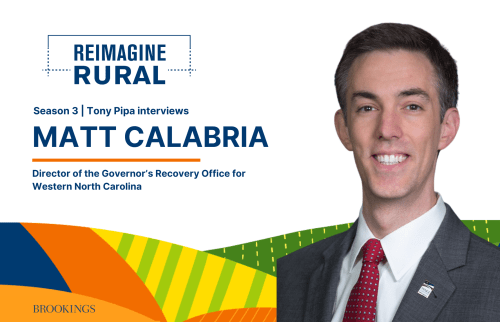
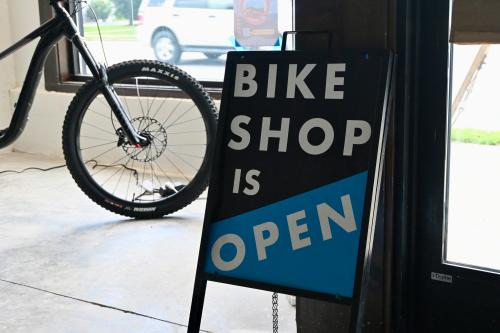
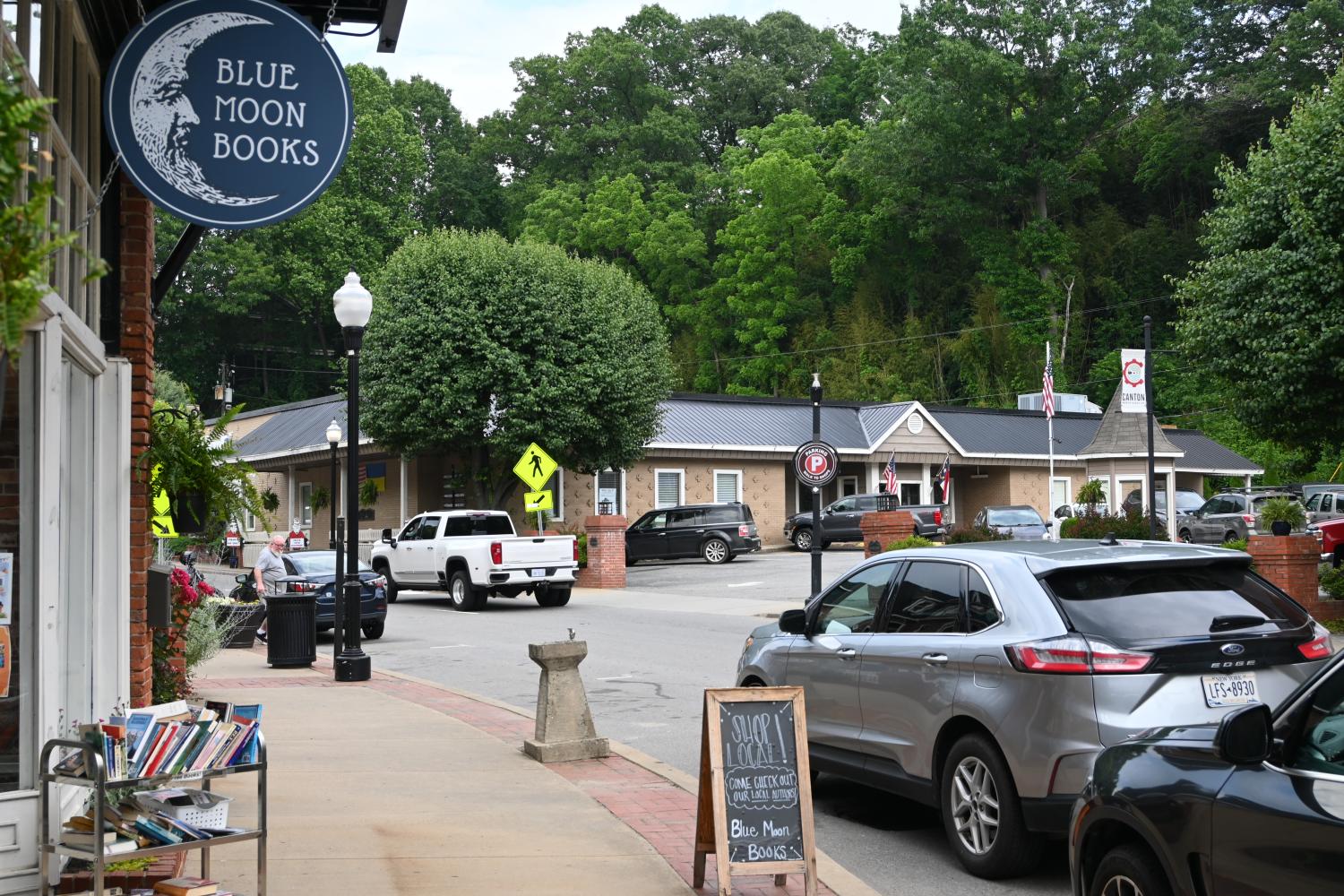
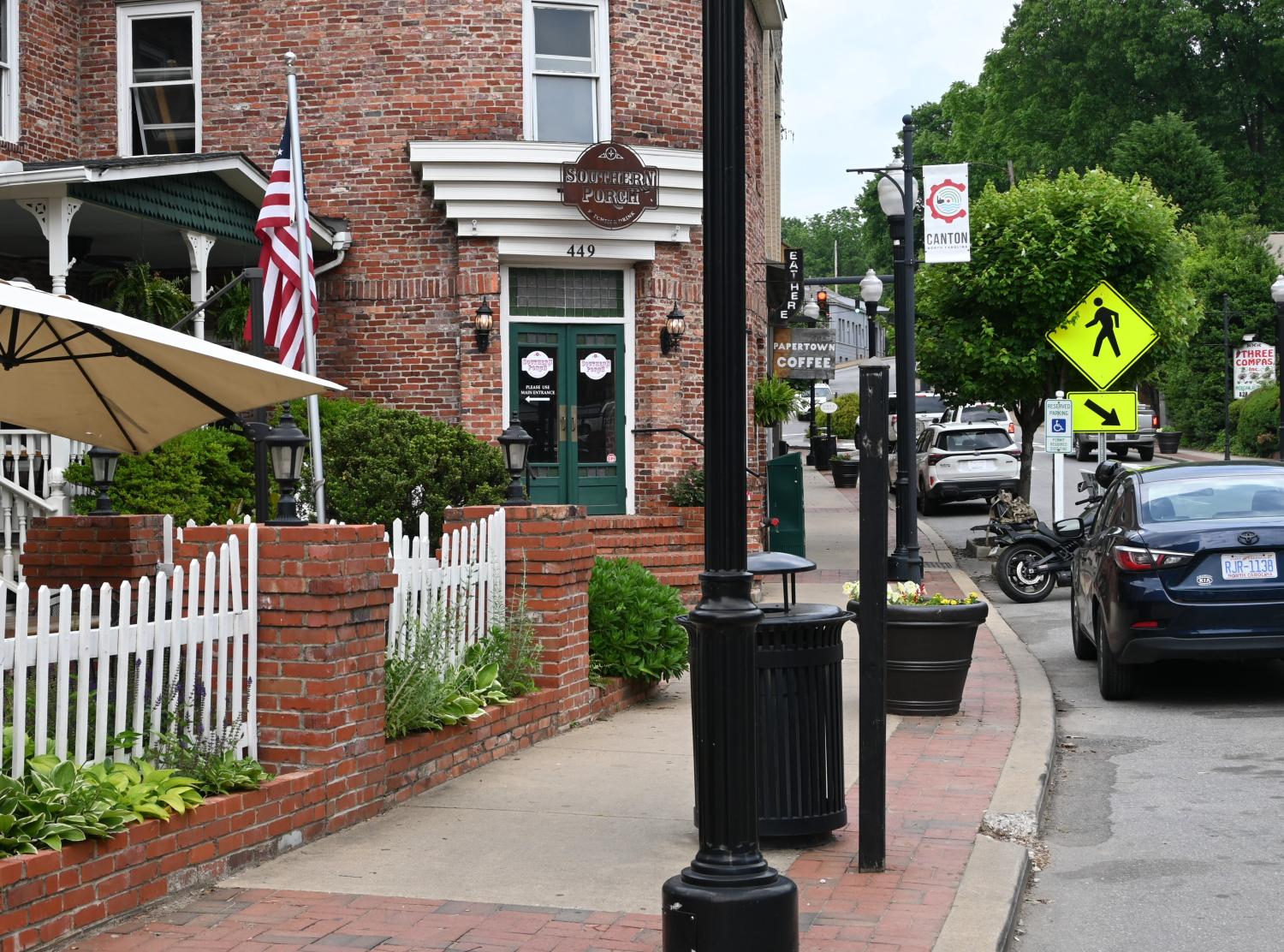
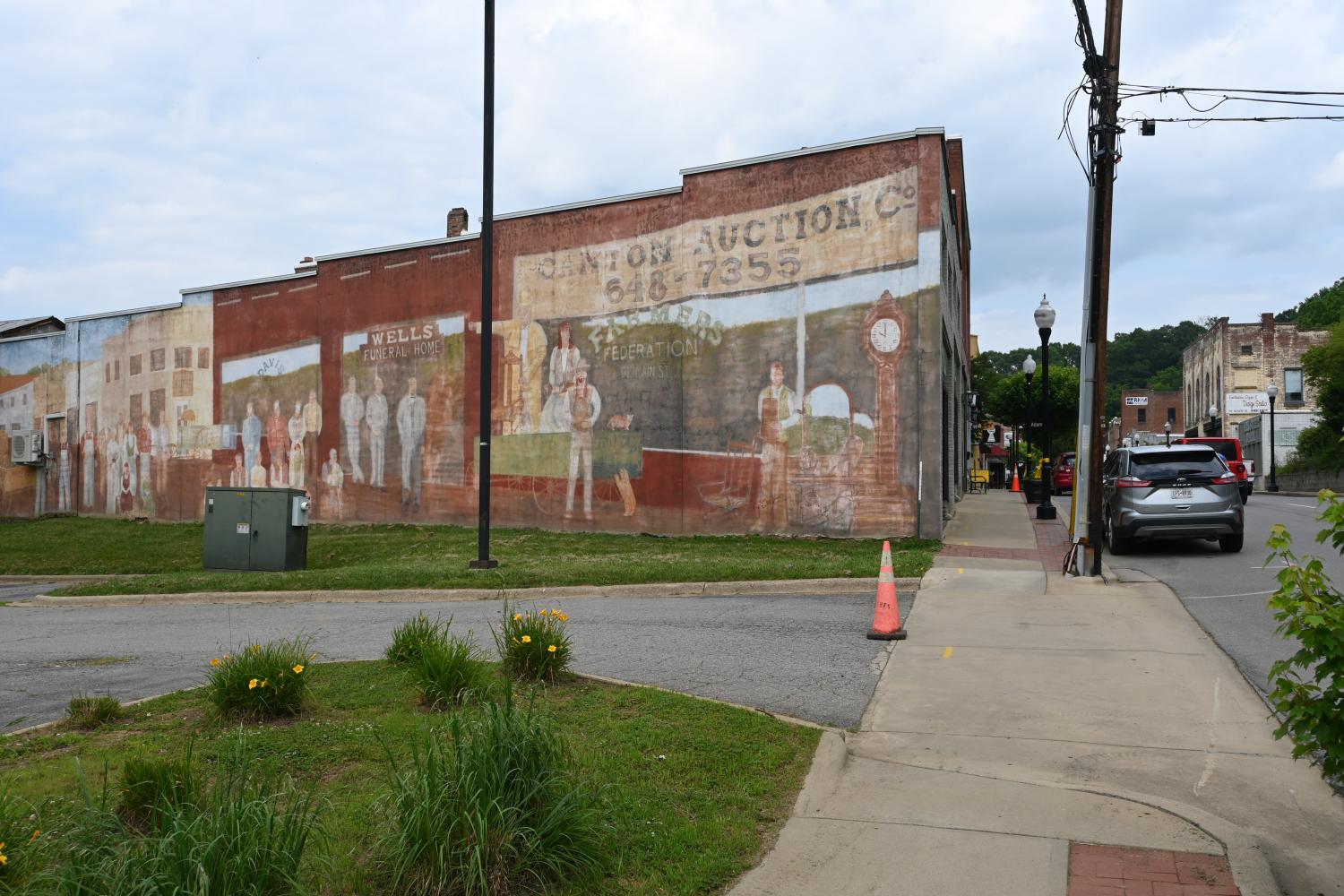
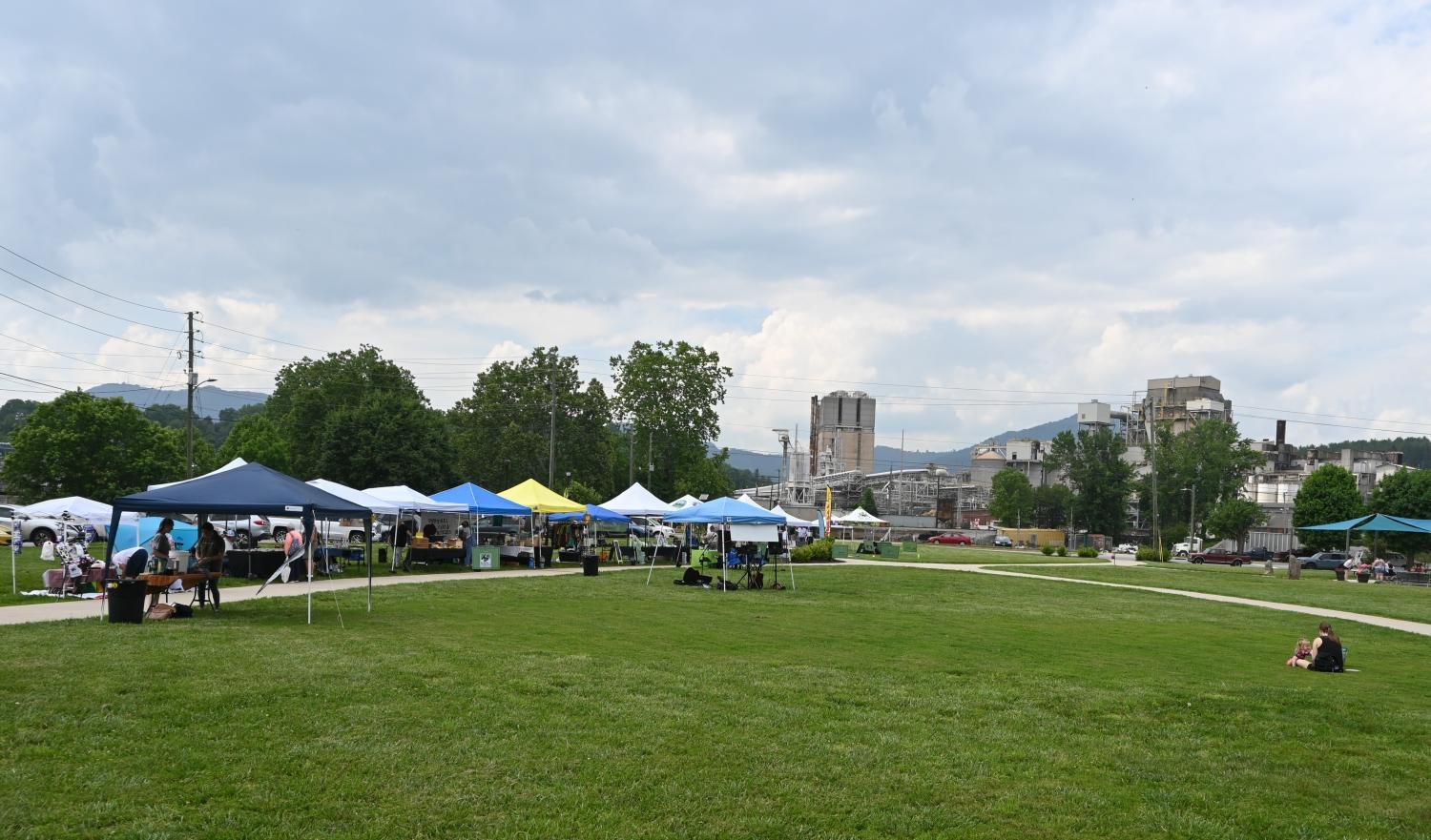
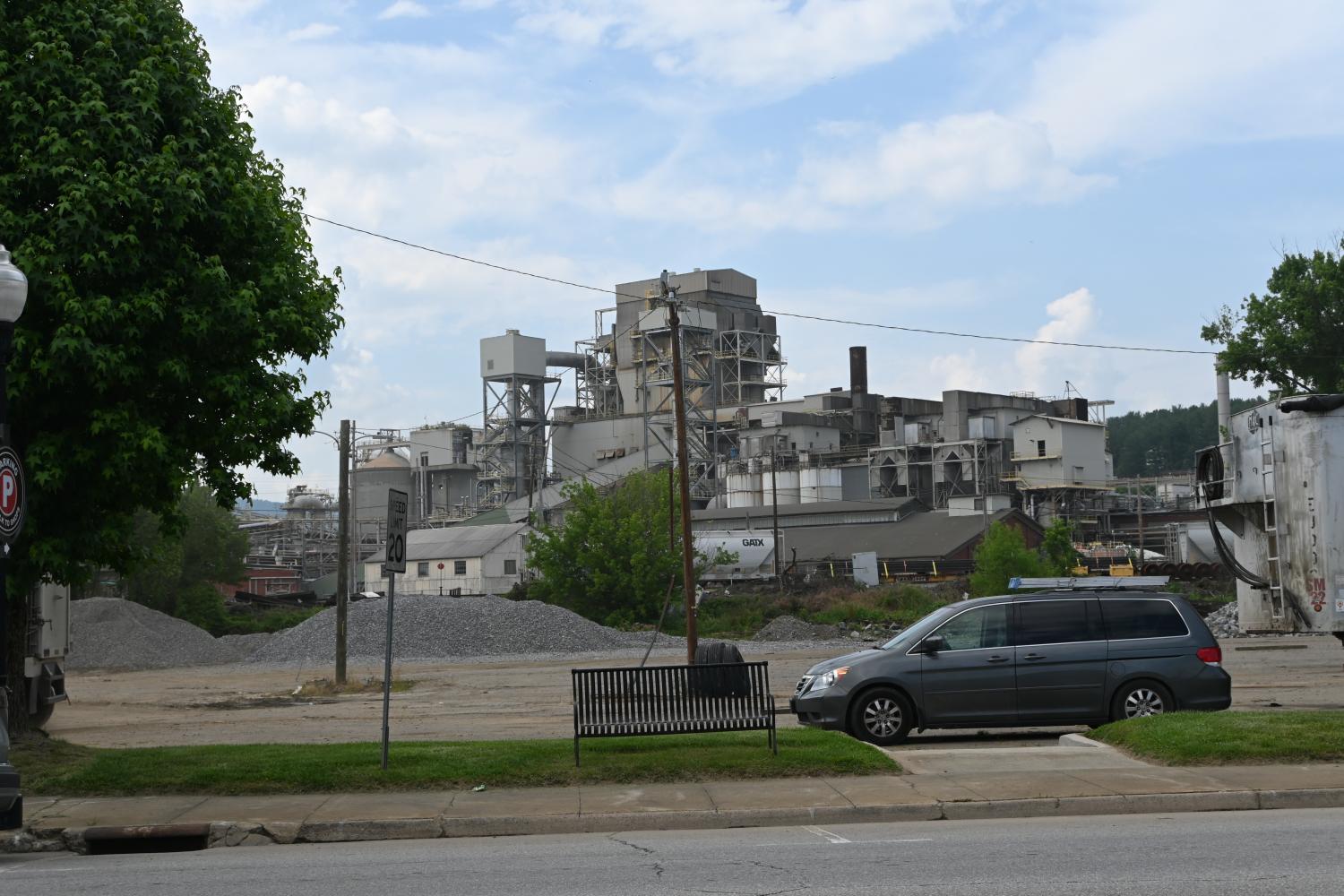
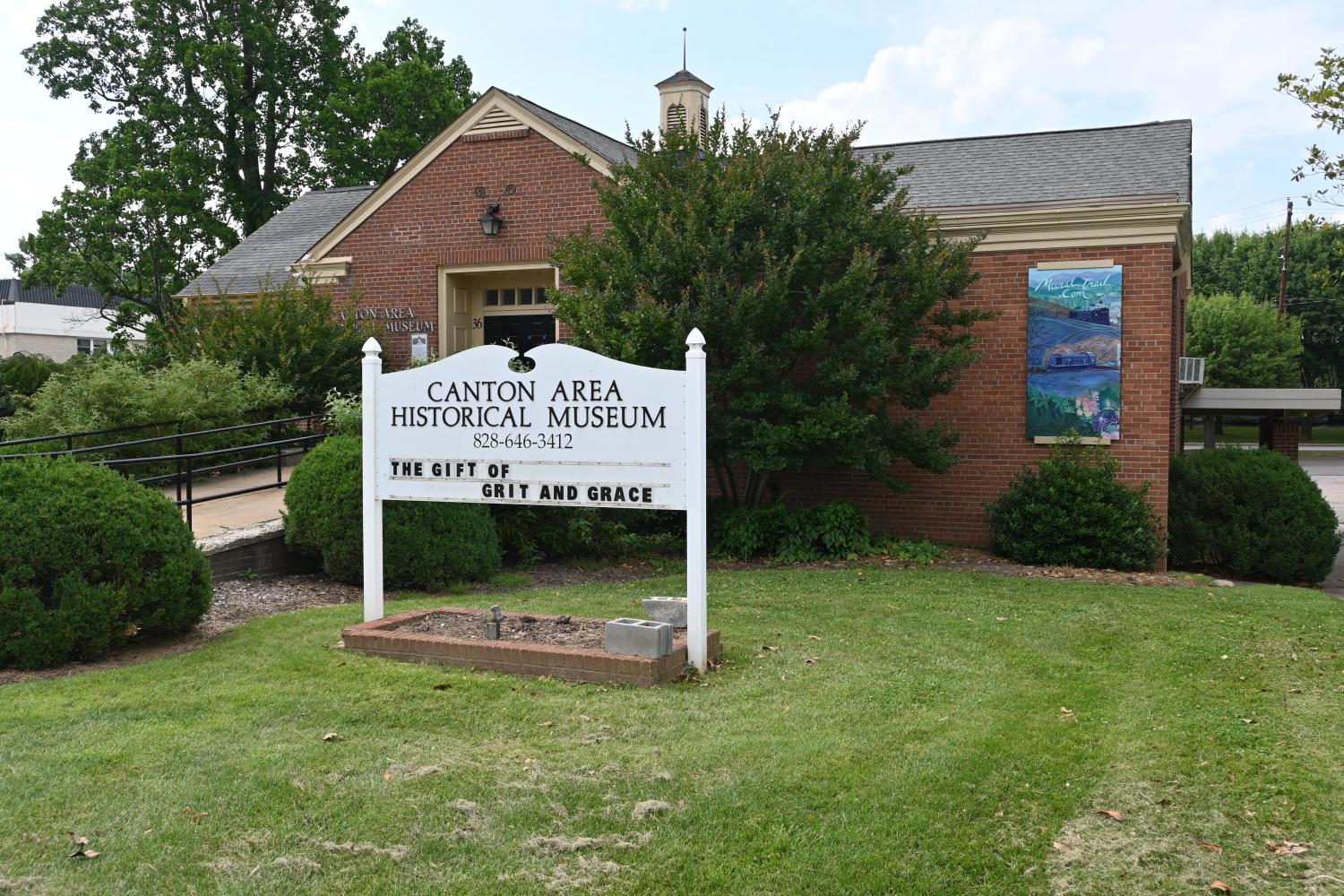
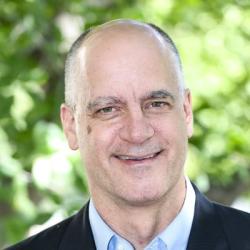
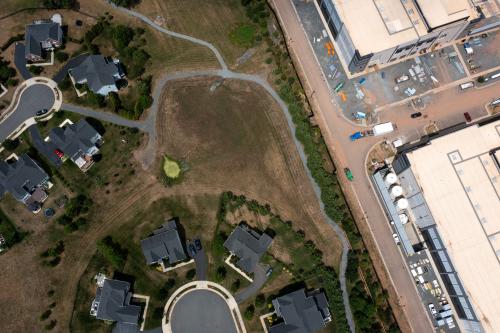
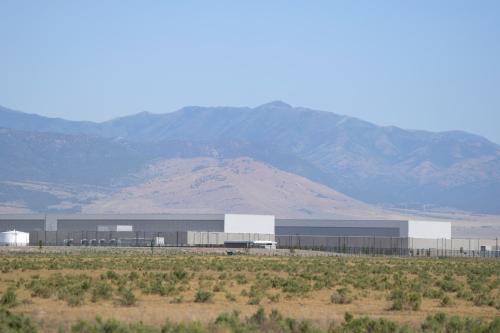
Commentary
PodcastHow Canton, North Carolina, is maintaining its identity and resilience after multiple disasters
Listen on
Reimagine Rural
July 29, 2025